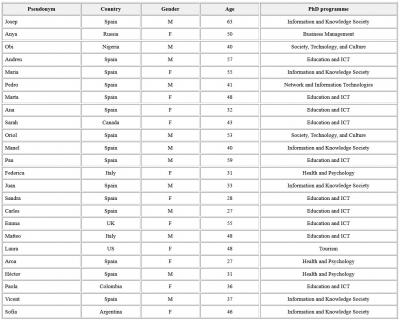"Online doctoral candidates constitute an ultraperipheral population in the academic landscape," argue the authors. "Online delivery was viewed as both a blessing for the accessibility it enabled and a curse due to pervasive feelings of isolation and virtually non-existent peer networks." I would suggest that these peer networks exist - just look at GO-GN - but the students' "strong drive for participation, sometimes matched by the supervisor but rarely supported by the institution" renders them invisible. In any case, it would take a study of more than 24 part-time online students to reveal anything in the way of trends (you can't say, as these authors do, that "they often feel invisible and neglected by the institution" - you don't know that and you haven't shown that). But to the extent that graduate students are sometimes not able to find online support networks, that is indeed something that should be addressed.
Today: 0 Total: 415 [] [Share]




